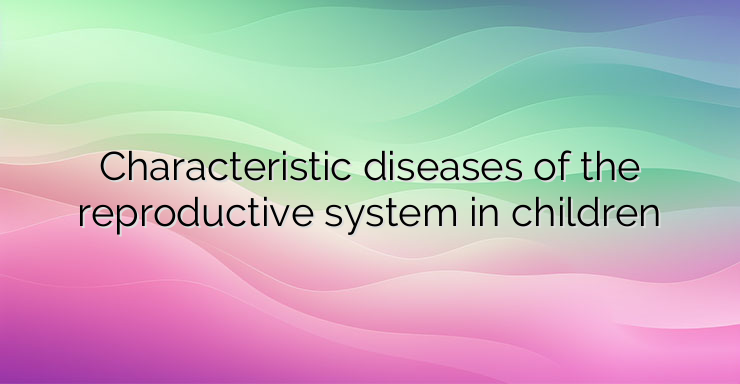Diseases of the genital system in children are a relatively rare problem. Their specificity is determined by the anatomical features during the various stages of development of the sexual organs in girls. They undergo significant development during puberty under the influence of sex hormones, which begin to be secreted in large quantities. The most common diseases that occur in girls are inflammatory, their frequency is about 70% of all gynecological disorders. Depending on the causes, they are divided into specific and non-specific inflammatory diseases. 1. Nonspecific inflammatory diseases of the genital system in children are most often caused by pathogens that are not characteristic of this system. Very often they are the result of violations in hygiene habits in children. Due to the peculiarities of children’s genitals, the inflammatory process most often covers the external genitals and the lower part of the vagina – vulvovaginitis develops. The most common causes of vulvovaginitis in children are microorganisms characteristic of the gastrointestinal tract. They are most common in young children who have not yet developed hygiene habits. Microorganisms such as Staphylococcus aureus and Streptococcus haemolyticus are characteristic of respiratory infections. Through the hands, the infection is very often transmitted to the genitals and they can be isolated as the causes of inflammatory diseases of the genitals in children. A characteristic group of diseases in young children are intestinal parasites. As a result, vulvovaginitis can develop. Parasites, most often pinworms, cause itching, as a result of which the skin in the perianal area is injured. Infection occurs through mature eggs of the sedge, which are on contaminated objects or have fallen into the soil. Vulvovaginitis in children usually occurs with characteristic complaints. Redness of the external genitalia is one of the first symptoms that parents see. A large part of inflammatory diseases proceed with the appearance of discharge, which can be used for microbiological examination. Many children report pain during urination, which, in addition to uroinfection, can also be a symptom of an inflammatory disease of the genital organs. NEWS_MORE_BOX 2. Specific inflammatory diseases of the genital system in children are caused by pathogens that are characteristic of this system. During the first days after birth, the level of estrogens in the child is increased, due to their transfer during intrauterine life from the mother to the fetus. An increase in the levels of estrogens is also reported during the puberty period, when under their influence the secondary genital marks develop. They lead to changes in the vaginal mucosa that predispose to the development of a mycotic infection or an infection with Trichomonas vaginalis. Neisseria gonorrheae can cause specific vulvovaginitis in children by different mechanisms of infection.In newborns, the infection is transmitted from the mother to the child. During puberty, risky sexual behavior may be the cause of infection. Very often in young children, vulvovaginitis can be the result of a foreign body entering the vagina. One of the characteristic symptoms that mothers most often find is the presence of vaginal discharge, which may also contain blood. Parents are important in building hygiene habits in children.


Leave a Reply